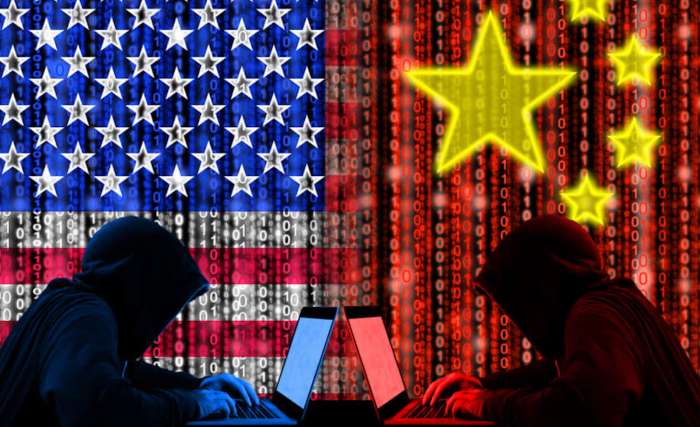China could get hit with unprecedented sanctions by u s over cyberattacks – China could get hit with unprecedented sanctions by the US over cyberattacks, raising concerns about the future of US-China relations. The potential for such sanctions stems from a growing list of cyberattacks attributed to China, which have targeted US businesses and government agencies, impacting national security and economic interests. The US has historically used sanctions as a tool to pressure China on various issues, and these new sanctions could mark a significant escalation in the ongoing cyber conflict between the two nations.
The potential impact of these sanctions extends beyond cybersecurity concerns, encompassing economic, technological, and political spheres. Experts warn that the sanctions could disrupt global trade, slow China’s economic growth, and further strain already tense diplomatic ties. Moreover, the sanctions could trigger a technological decoupling between the US and China, hindering collaboration in key sectors like artificial intelligence and semiconductors.
Historical Context of US-China Relations
The relationship between the United States and China has been marked by both cooperation and tension, evolving significantly over the decades. From the early days of diplomatic recognition to the present era of economic interdependence and strategic competition, the two nations have navigated a complex and dynamic relationship.
Timeline of Major Events
The timeline of US-China relations reflects a journey from isolation to engagement, punctuated by moments of cooperation and conflict.
- 1949: The establishment of the People’s Republic of China (PRC) led to the United States’ initial refusal to recognize the new government, opting to maintain diplomatic relations with the Republic of China (ROC) on Taiwan.
- 1971: The United States recognized the PRC and established diplomatic relations, marking a turning point in the relationship. This was facilitated by President Nixon’s historic visit to China.
- 1979: The United States and China established formal diplomatic relations, paving the way for increased economic and cultural exchanges.
- 1989: The Tiananmen Square protests and crackdown led to strained relations between the two countries, with the United States imposing sanctions on China.
- 1990s: The US-China relationship saw a period of economic growth and cooperation, marked by China’s entry into the World Trade Organization (WTO) in 2001.
- 2000s: While economic ties deepened, tensions emerged over issues like human rights, Taiwan, and China’s growing military capabilities.
- 2010s: The relationship became increasingly complex, characterized by economic interdependence, strategic competition, and concerns over China’s assertive foreign policy.
- 2020s: The relationship continues to be marked by trade disputes, technology rivalry, and concerns over cybersecurity, human rights, and regional stability.
Economic Interdependence, China could get hit with unprecedented sanctions by u s over cyberattacks
The economic relationship between the United States and China has evolved dramatically, marked by a significant increase in trade and investment.
- 1970s: The normalization of relations opened doors for trade, with China becoming a major exporter of goods to the United States.
- 1990s: China’s entry into the WTO further boosted trade, leading to a substantial increase in bilateral trade flows.
- 2000s: The economic relationship deepened, with China becoming a significant investor in the United States.
- 2010s: Despite growing trade disputes, the two countries remain deeply intertwined economically, with China being a major trading partner for the United States.
Technological Advancements
Technological advancements have significantly impacted US-China relations, leading to both opportunities and challenges.
- Early Stages: Early technological exchanges focused on areas like agriculture and manufacturing.
- Rise of China: China’s rapid technological development in areas like telecommunications, artificial intelligence, and renewable energy has led to increased competition with the United States.
- Cybersecurity Concerns: The rise of cyberattacks and concerns over intellectual property theft have strained the relationship.
Conclusion: China Could Get Hit With Unprecedented Sanctions By U S Over Cyberattacks
The possibility of unprecedented US sanctions against China over cyberattacks presents a complex and multifaceted challenge. While the US aims to deter future cyberattacks and protect its national security, the consequences of such sanctions could reverberate throughout the global economy and political landscape. The potential for escalation and the need for diplomatic solutions highlight the urgent need for open communication and collaboration between the US and China to address cybersecurity concerns in a way that promotes stability and mutual respect.
The potential for unprecedented sanctions against China due to cyberattacks raises concerns about the impact on its tech industry. While these sanctions might target major players, it’s worth considering the ripple effects on smaller companies like those offering services like xiaomi on demand roaming china.
Such sanctions could disrupt the flow of technology and investment, potentially impacting the availability and affordability of these services for Chinese consumers.
 Securesion Berita Informatif Terbaru
Securesion Berita Informatif Terbaru
